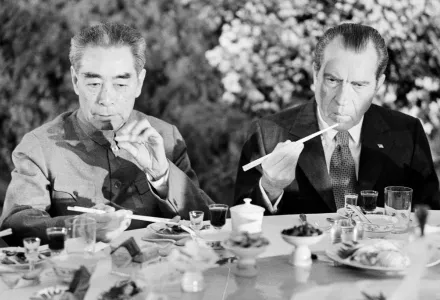Speaker: Fahd Humayan, Assistant Professor of Political Science,Tufts University; Stanton Nuclear Security Junior Faculty Fellow, CISAC
Why do some leaders reposition themselves on salient foreign policy issues in ways that may contradict their earlier behavior or rhetoric? The speaker will argue that expectations of how leaders ought to behave are tied to their reputations; however, leaders are also both strategic actors and reputationally mindful. In other words, leaders have strategic incentives to either maintain or moderate their reputations on salient foreign policy issues — a phenomenon the speaker terms reputation management.
Using controlled case comparisons of eight episodes of foreign policy position-taking across India, Israel, South Korea, and the United States, the speaker will argue that two variables — a leader’s preference elasticity, and the degree of electoral constraint circumscribing leader behavior — determine the opportunity constraints for leaders to either maintain or moderate their reputations, which outwardly manifests as behavioral consistency or inconsistency respectively.
Admittance is on a first come–first served basis. Tea and Coffee Provided.





